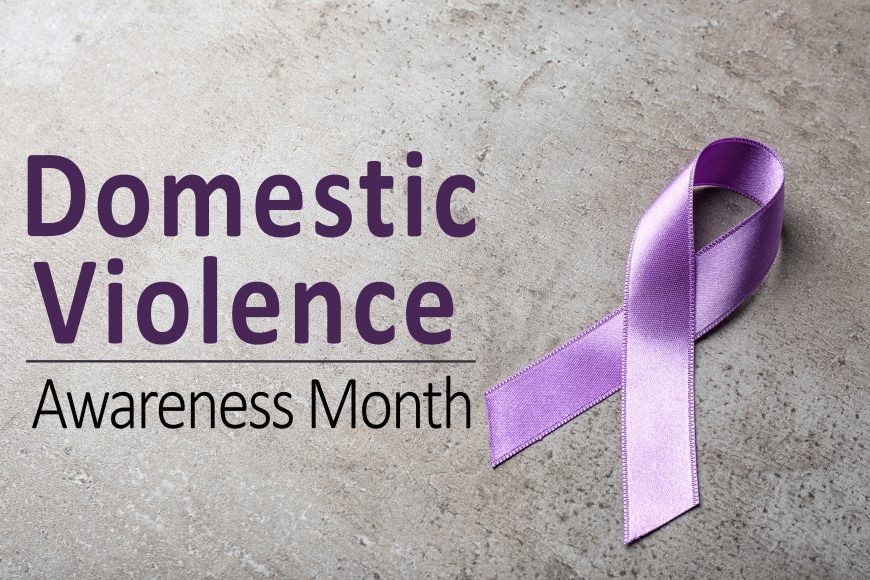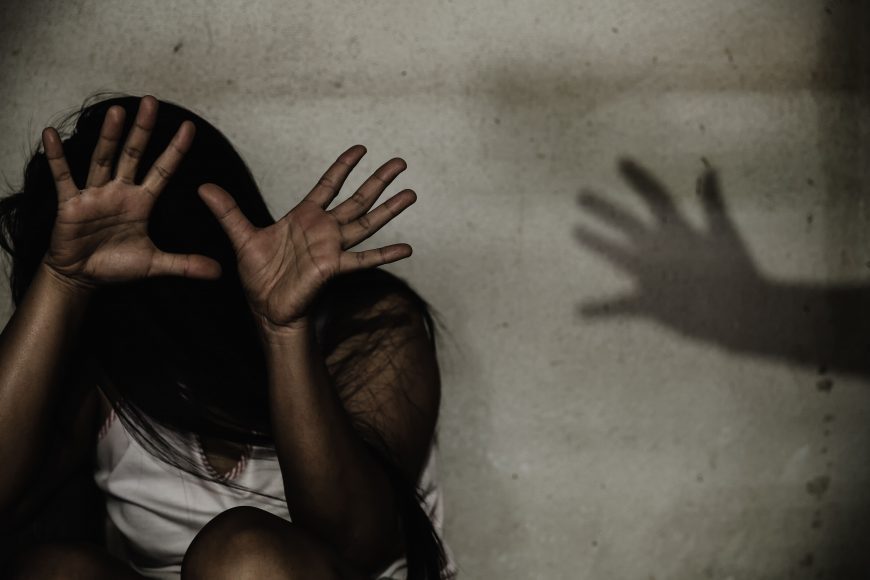As October is Domestic Violence Awareness Month, we are resharing this post with you.

In the United States, about 1 in 4 women and 1 in 10 men have experienced physical (including sexual) violence and/or stalking by an intimate partner. Statistically, that means we are passing abused or stalked women and men in the grocery store, at the school football game, taking a walk in the neighborhood, and shopping for toys. It’s there, hidden behind excuses for not attending the party, baggy clothes, and heavy makeup.
How do we prevent our children from getting into this situation? First, love. Cheesy, I know, but true! Love your children in a way that they feel safe to come to you when something scary happens. Love your partner in a way that you want your children to love and be loved by their partners. That is how we learn— by what we see, experience, and feel. The home atmosphere is what becomes “normal,” and we often recreate some version of that later in life. Be a good relationship model. Get therapy if that is what would feel good. Leave if that is what’s needed. It is not always better to “stay for the children” in the long run.
Of course, it is all much more complicated than that. People often stay in abusive relationships because of far more than how they understand love. In abusive relationships, a pattern often arises, called the Cycle of Violence. This cycle includes a calm period to start, but eventually, tension starts to increase. As the stress builds up, others in the home might feel the air thicken and anxiety increase. Eventually, there is a “crisis” in which abuse, threats, substance use, property destruction, or violence may occur. Once that tension is broken and the immediate crisis is over, it is back to the calm(er) phase, which may even seem like a break from the tension. During this time, the abuser may be apologetic, seek forgiveness or repair, promise that crises will never happen again, claim guilt or remorse, or they may try to lavish their partners with gifts and compliments. But then the stress builds … and the cycle begins again.
What’s more? Abusers tend to create an environment that is difficult or near impossible to leave. They separate their partners from their friends and family, leaving them with no social support. They restrict access to finances, making leaving feel like an economic disaster. They berate their partners so effectively that the survivor no longer believes that they are worth anything better, can find anything better, or be accepted by anyone better. In fact, abusers tend to be such good manipulators that the survivor likely feels as though they have no choice but to stay. In the worst situations, it is downright dangerous to leave without a plan due to violence and risk.

What should you do if you suspect someone you love is in an abusive relationship? Honestly, that is a tough question to answer! Be there for your loved one, even if they push you away, deny anything is going on, or laugh it off. It might be a way to avoid a tough conversation, but that does not mean they do not need you. It can take 7-12 attempts to leave a partner for a survivor to be successful! Make sure they know that talking to you is a judgment-free zone. If your loved one is ready for change, be patient and planful about what that change looks like.
There are a variety of resources to help escape dangerous situations, such as those listed below. Keep in mind that in the riskiest situations, the abuser may check their partners’ calls and voicemails, internet history, track mileage, keep track of every penny spent, etc. Each detail needs to be considered so that the violence does not increase even more.
To really honor Domestic Violence Awareness Month, consider sharing some important resources. Check out this website for a variety of resources, including legal help, financial guidance, therapy, childcare, hotlines, and safety practices.
And if you are the loved one in an abusive relationship, know that there are people out there who understand. There are resources to help with housing, childcare, finances, and safety. You are not in this alone!
National Domestic Violence Hotline:










